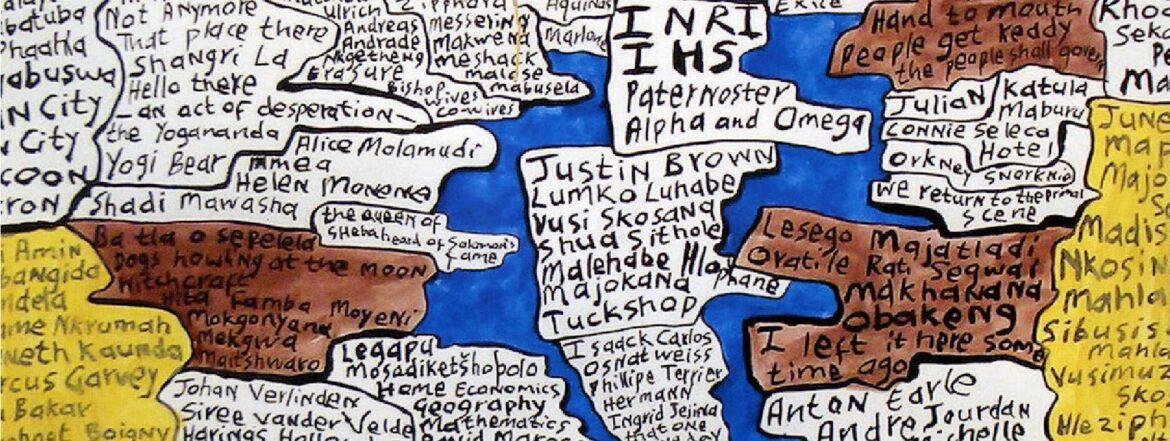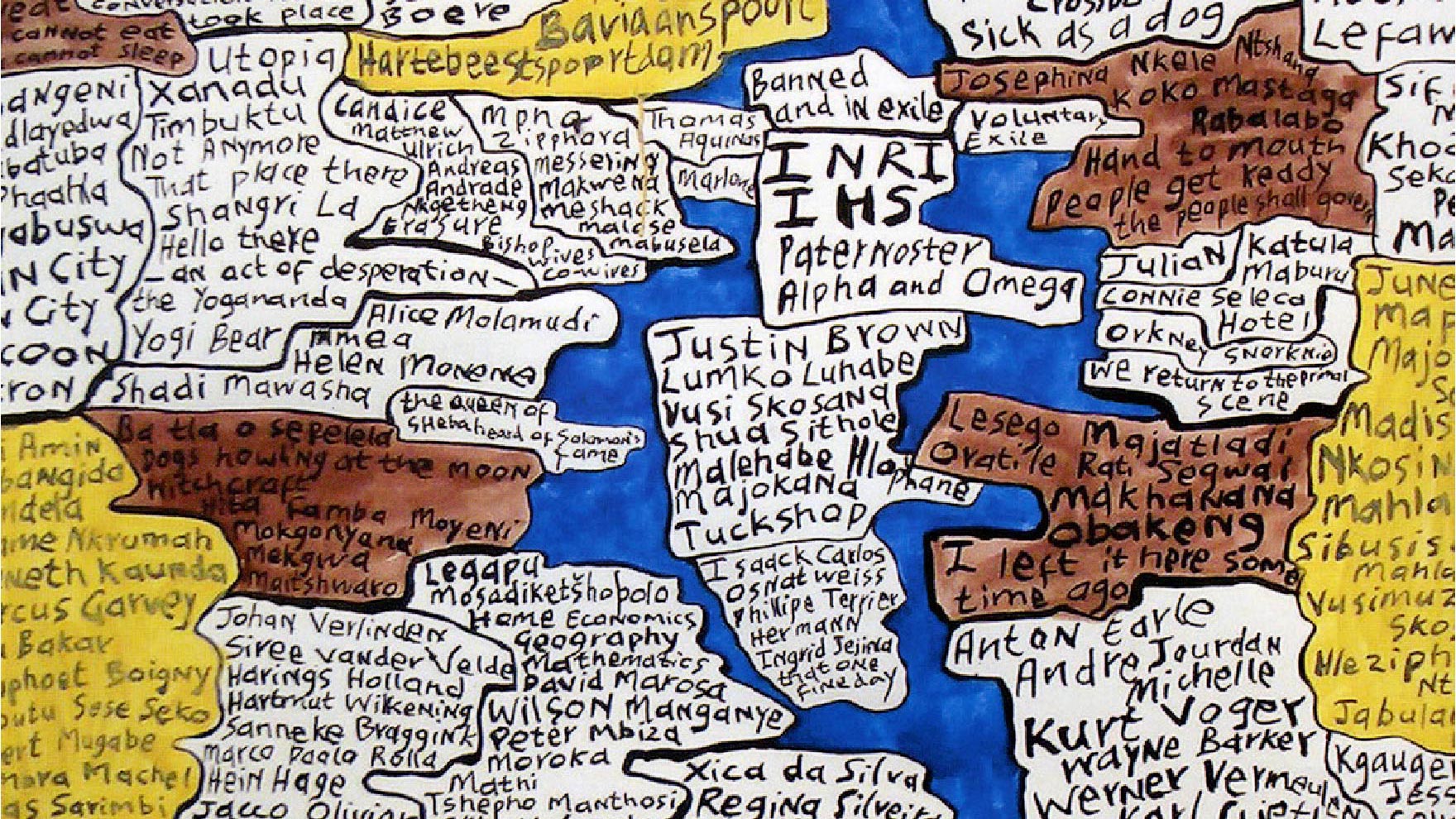Archives of the Non-Racial
Jul 7–Jul 11, 2014
Cape Town, South Africa
The Johannesburg Workshop in Theory and Criticism (under the umbrella of WISER) and the Seminar in Experimental Critical Theory (UCHRI) joined forces in organizing a two-week Workshop on Archives of the Non-Racial.
Since the 15th century race has been a central element in the making of the modern world. It has marked masters from slaves, the exploiting from the exploited, the belonging from the non-belonging, the qualified from the supposedly unqualified. Historical struggles against racism, in response, have contributed to a deepening and universalization of some of the key normative pillars of modernity, most notably freedom, democracy, and equality.
By the 19th century, the “non-racial” emerged as an intellectual, political, and ethical category, assuming a variety of interpretations. Indexed to different intellectual, social, and political contexts, at times the non-racial has stood for the idea of “a shared human nature”. At others, it has gestured toward the idea of “abolition”. Sometimes it has meant the erasure of “difference” and its substitution by “sameness” alongside the commitment to a set of universal moral principles. During the struggle against Apartheid, in particular, it clearly became a motivating force in global politics.
Over the past 30 years, neoliberalism has sought to restrict any use of race by the state and has constrained states from classifying and categorizing by race. At the same time, though, racial restriction and discrimination have been reserved to private expression, state protected by renewed commitment to freedom to speak no matter the consequences. This laissez-faire racism in the name of free speech has built on and extended more established forms and expressions. It has been aimed specifically at immigrants, Muslims, and Islam, and has been mobilized in Europe, on the internet, and in the US. Earlier forms of racial redress and equal access, such as affirmative action and voting rights, have come under increasing attack, legal and legislative.
Discourses of post-raciality have circulated widely in the attempt to signal racism’s past, at once reordering racial expression and racist articulation for the current moment. By contrast, in places such as Brazil and South Africa renewed debates on reparations, empowerment and historical accountability have sought to undo the legacies of racisms.
In continuing the experimental tradition of research and intervention in the humanities and social theory for which both the Johannesburg Workshop in Theory and Criticism (under the umbrella of WISER) and UCHRI’s Seminar in Experimental Critical Theory are well known, the Archives of the Non-Racial Workshop assessed the possibilities and limits of the “non-racial” in terms of the politics of the modern world and its core values: democracy, freedom, dignity, equality, the human, universality, justice.
Since the 19th century, commitments to defeat racisms have ranged from abolition, non-racialism, colorblindness, racelessness, and postraciality to antiracism, anti-Apartheid, and Black Consciousness. Each has been underpinned by some version of the human. The range of investments is signaled by the fact that the “nonracial” itself is ambiguous – it oscillates between ignoring race (and so the structures of domination in its name) and conceiving socialities outside the frame of the racial.
To assess what they tell us about the project of human emancipation in our times, we examined current struggles/alliances/coalitions/solidarities/forms of mobilization/registers of intervention, drawing relations and comparisons between various times and places.
The Workshop engaged South African histories and landscapes of the centuries-long struggles against racism, from the Freedom Charter, Treason and Rivonia Trials to Constitution Hill, from Black Consciousness and labor struggles to political resistance, anti-apartheid to post-apartheid. In each site, and where possible at all in dialogue with local communities, we crafted critical dialogues with other traditions of racial configuration, non-racialism, and antiracism elsewhere.
The Workshop started off in Johannesburg, South Africa, and then travel together through Swaziland to Durban, to the Steve Biko Center in the Eastern Cape, and end in Cape Town.
Program
The 2014 program spanned two intensive weeks of lectures, seminars, public events, exhibitions and performances. The idea behind the planning of this mobile Workshop was to travel to significant critical sites in the history of South Africa’s notorious racial project in order to open the question of the “non-racial” both in South Africa and in its manifestation in other parts of the world. Workshop participants traveled by bus from Johannesburg to Swaziland, Durban, Mandela’s grave at Qunu, Steve Biko’s Ginsberg, and conclude in Cape Town. At each site, the Workshop convened conversations that explored the histories and legacies of racisms in these particular places, posing these histories in relation to broader conversations about the post-, non-, and anti-racisms across relational global contexts. Lectures, panel discussions and performances drew on research from the African continent, China, Australia, the Middle East, Latin America, the Caribbean, and Euro-America, as well as on some of the oceans that connect them.
Schedule
PUBLIC LECTURE by Ghassan Hage
The A-Racial
Monday, 7 July, 9am-12.30pm
Steve Biko Centre, Ginsberg
PUBLIC LECTURE by Kelly Gillespie
The Trouble with Non-Racialism
Monday, 7 July, 2.30pm-4pm
Steve Biko Centre, Ginsberg
MUSICAL PERFORMANCE by Neo Muyanga and Abelusi
FREE on a first come first seated basis
Monday, 7 July, 8pm-9pm
Steve Biko Centre, Ginsberg
PUBLIC LECTURE by Xolela Mangcu
Black Consciousness Yesterday and Today
Tuesday, 8 July, 9am-11am
Steve Biko Centre, Ginsberg
BOOK LAUNCH Dutch Racism
Philomena Essed with a response by Gina Dent
Wednesday, 9 July, 7.30pm-9pm
The Book Lounge, Cape Town
PUBLIC LECTURE by Salah Hassan with a response by Ackbar Abbas
Rethinking Cosmopolitanism: Is Afropolitan the Answer?
Thursday, 10 July, 9am-11am
Hidding Hall, UCT, Cape Town
PUBLIC PLATFORM
Gina Dent: Diaspora, Afro-Pessimism, and Black Popular Culture
Neo Muyanga: Revolting Music
Thursday, 10 July, 2.30pm-5pm
Hidding Hall, UCT, Cape Town
PUBLIC LECTURE by Angela Davis
Anti-Racism: Transnational Solidarities
Thursday, 10 July, 6pm-7.30pm
Centre for the Book, Cape Town
PUBLIC LECTURE by Deborah Thomas
The Limits of the Counter-Archive
Friday, 11 July, 10.15am-12.30pm
Brass Bell, Kalk Bay
PUBLIC PLATFORM
Premesh Lalu, Zimitri Erasmus and Ciraj Rassool
A Dead Archive? Non-Racialism’s Demise in Cape Town
Friday, 11 July, 4.30pm-6pm
District Six Museum
MUSICAL PERFORMANCE by Neo Muyanga’s Kwacha Trinity
Friday 11 July, 8pm-9pm
Hidding Hall, UCT


